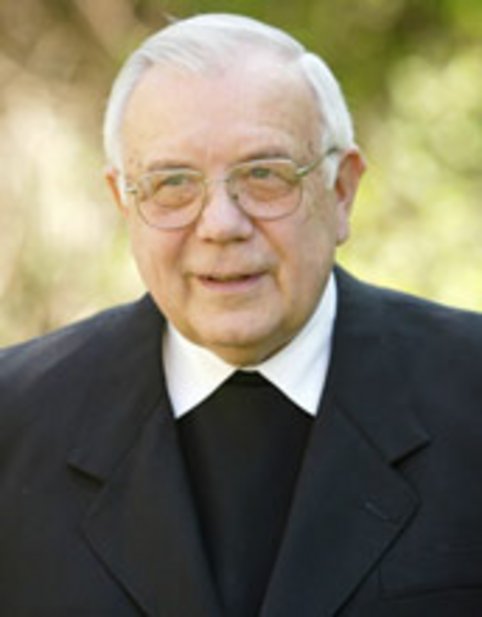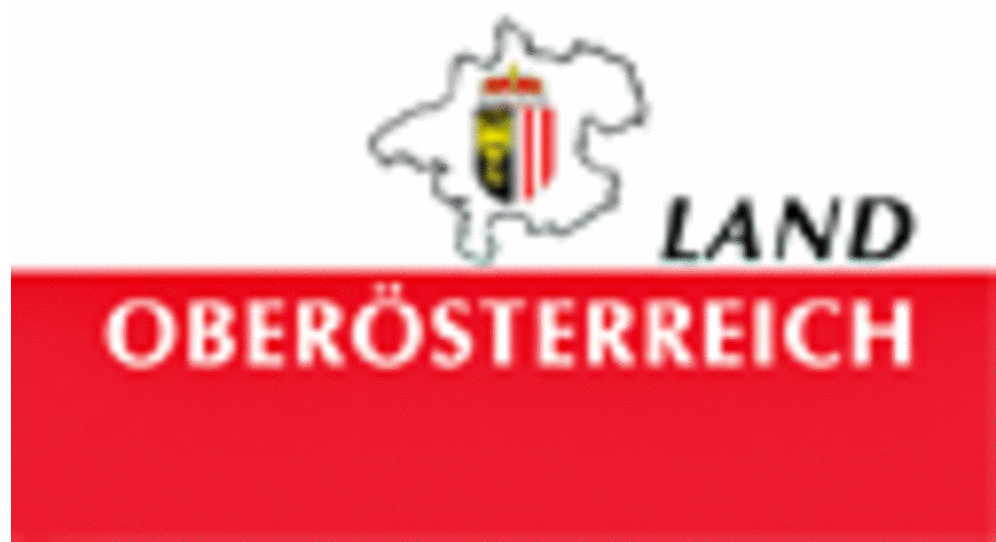Business-Ethics-Society
Economic liberalisation and globalisation as well as social pluralisation and segmentation are increasingly shaping individual and social life. As "signs of the times", they are a major challenge for political forces and represent an essential context for theological and ethical reflection.
The task force focuses on the reciprocal opening of relevant courses for students from other faculties, the direct discourse between economics, sociology and theology as well as interdisciplinary research projects (including study days, workshops and evening events).
Contacts
Spokesperson of the Task Force WiEGe
Deputy Spokesperson
Scientific Coordinator
Advancement Award
WER-Prize – Prize for the Advancement of the Dialogue between Business, Ethics, and Religion. The prize is awarded biannually. Link to the presentation of awards’ report 2014.
The next call for proposals and award presentation will take place in 2016.
Economic liberalization and globalization as well as social diversification and segmentation are increasingly influential factors to individual and social life. As “signs of the times” they are a major challenge to politics and provide a crucial context of theological and ethical reflexion.
Business – Ethics – Society addresses a threefold problem:
- The specific issue: Economic and social developments are not fatalistic or deterministic processes. We should instead interpret their dynamics in regards to general principles that help lead a successful life. On this basis, new possibilities can be discovered, which allow to effectively and responsibly influence these processes.
- The particular theological point of view: The Christian faith in God includes the faith in human capacity to take an active role in the whole of creation and to act autonomously and responsibly in it. At the same time faith helps us sharpen our perception of the prevailing injustices and of those developments that depict a threat to the good human life and our peaceful coexistence. Ultimately, the Christian faith fuels hopes that peace and justice are possible, wherever people are willing to get involved. It is the central concern of this project to reflect on these potentials and to add valuable insights to the general discourse.
- The interdisciplinary approach: A cooperation with representatives of social and economic disciplines is absolutely essential to the project. This cooperation is what makes possible the goal to bring together the findings of individual disciplines and exchange and develop them further in a meaningful way. Beyond the purely scientific work there is scope to make available the theological and ethical insights and competencies of this project to those active in business and society.
The WiEGe project has established the following platforms:
- Relevant modules are open to students of all faculties
- Direct discourse and debate between economics, sociology, and theology
- Interdisciplinary research projects
- The WiEGe-certificate is available to all students as an additional qualification
- Transfer of basic knowledge of socioeconomic relations
- Ability to debate current problems and pressing issues of the globalised world, and to proactively address and solve them
- Development of criteria required for responsible Christian action
Professions this area of specialisation prepares for include but are not limited to:
- Corporations and Companies: competent leadership and team-work-skills are crucial for the formulation and development of ethical business principles. The course also provides skills important for HR, staff development, and organisation and management
- Social Policy: full-time or volunteer work in societies, clubs, unions, political parties and movements, NGOs
- Adult Education: self-employed consultancy as well as social and political (conceptual) work in centres for training and education
- BHS and Trade Schools / Spiritual Welfare: in companies, with youth groups, in hospitals etc.
Curriculum
Since the introduction of the new curriculum in 2008 each student in the diploma programme Catholic Theology must complete the Thematic Module I: Business - Ethics - Society (WiEGe). WiEGe is an optional module in the BA and MA programmes in Catholic Religious Education and can be taken for credit.
Qualification
The certificate is not directly qualifying for a specific job as is the case with more traditional study programmes. Nonetheless, it depicts a crucial, additional socioeconomic and socio-ethical qualification for students of the social sciences. Skills acquired include but are not limited to:
- Ability to competently contribute to the development of ethical business culture
- Development of ethical guidelines for action within the organisation or corporation
- Responsible involvement in business processes
Modules
Students participating in the following modules (at least 12 SWS or 18 ECTS) in addition to their regular study load will receive the WiEGe-certificate when they graduate.
Modules equivalent in content taken at the JKU can be accredited as well. Please see your personal tutor or the professor in charge to clarify whether the modules you wish to take can be accredited.
- Working Group (AG) Business – Ethics – Society from a theological perspective (1 SWS / 1,5 ECTS)
- Lecture (VL) Introduction to Philosophy (1 SWS / 1,5 ECTS)
- Lecture/Seminar (VL/SE) Contemporary Philosophy (2 SWS / 3 ECTS)
- VL Ethics I (2 SWS / 3 ECTS)
- VL Social Reality and the Christian Message or 2 Seminars from the varying course offer at the KU on the fundamental questions and methods of Christian Social Science (2 SWS / 3 ECTS)
- Selected questions regarding Christian Social and Business Ethics or VL or SE offered by the KU on Pastoral Sociology (2 SWS / 3 ECTS)
- SE: selected topics on problems regarding Business – Ethics – Society (conceptions of man in economics, economics and ecology, the Bible and economics, new research in economics) (2 SWS / 3 ECTS)
You receive your certificate after your graduation.
The curriculum for the Diploma programme Catholic Theology established in 2008, § 4 (2), includes the thematic module Business - Ethics - Society. This module is only effectively completed after successfully passing a so-called Synthesis-Exam, in which you will have to prove to the module coordinator your interdisciplinary understanding of and approach to the matter.
- Apply via signing up for the examination with the current WiEGe coordinator, Prof Dr Michael Rosenberger
- One week prior to the exam you must present all relevant LV examination certificates as well as the form “Confirmation of Completion of a Thematic Module” to the module coordinator
- The exam will focus on an overall understanding of the subject matter of WiEGe rather than repeat issues of other individual modules
You should be able to answer the following questions:
- How and why did you benefit from taking the additional relevant modules?
- Where and how did you make use of which specific methods of the social sciences and economics in the additional modules?
- How are you going to integrate these methods into a theological, holistic perspective of economics, business, and society?
- Which relevance will these methods have for the rest of your study of theology?

Every year a WiEGe guest lecture takes place. The lecture series is called Maximilian Aichern Lectures.
The Academic Year 2003/2004 saw the initial WiEGe guest lecture, which has taken place every year since. It is named after the Bishop Maximilan Aichner and held in his spirit. Aichner showed great engagement for the cause of today’s challenges and possibilities faced by a caring, Christian organisation of society. The goal of the guest lectures is, on the one hand, to provide a thorough engagement with the currently most relevant and inspired approach to social and business ethics. On the other hand, the guest lecture provides an opportunity to directly investigate the most pressing questions of the social sciences and economics and their respective methods and insights. We invite well-known scientists and researchers from economics, business, ethics, and the social sciences, either from the Johannes Kepler University Linz LINK or other home or foreign institutes.
Economic liberalization and globalization as well as social diversification and segmentation are increasingly influential factors for both individual and social life. As “signs of the times” they are a major challenge to the political forces, and provide a crucial context of theological and ethical reflexion. The research focus Business – Ethics – Society (WiEGe) at the Catholic Private University Linz thus depicts a threefold concern that serves as a guideline for the “Linzer WiEGe Reihe:”
- The specific issue: Economic and social developments are not fatalistic or deterministic processes. We should instead interpret their dynamics in regards to general principles that help lead a successful life. On this basis, new possibilities can be discovered, which allow to effectively and responsibly influence these processes.
- The particular theological point of view: The Christian faith in God includes the faith in human capacity to take an active role in the whole of creation and to act autonomously and responsibly in it. At the same time faith helps us sharpen our perception of the prevailing injustices and of those developments that depict a threat to the good human life and our peaceful coexistence. Ultimately, the Christian faith fuels hopes that peace and justice are possible, wherever people are willing to get involved. It is the central concern of this project to reflect on these potentials and to add valuable insights to the general discourse.
- The interdisciplinary approach: A cooperation with representatives of social and economic disciplines is absolutely essential to the project. This cooperation is what makes possible the goal to bring together the findings of individual disciplines and exchange and develop them further in a meaningful way. Beyond the purely scientific work there is scope to make available the theological and ethical insights and competencies of this project to those active in business and society.
The Linz WiEGe Series sees itself as a platform documenting and promoting a broad access of research results to the general public in an understandable fashion.
Submissions
The task force WiEGe is happy to receive submissions for publication. By sending a contribution to the editors (Prof Dr Michael Rosenberger or Assistant Dr Edeltraud Koller) you effectively apply for publication with the Linz WiEGe Series. After a process of peer review we inform you whether your paper will be included in one of the upcoming issues.
Criteria of acceptance are the relevant thematic positioning of the paper’s argument in the context of business - ethics - society and the scientific nature and merit of the paper.
Contributions are to be submitted electronically via email either as doc., docx., or rtf. file. There is no maximum or minimum length.
Publishing Information
Linzer WiEGe Reihe (Linz WiEGe Series). Contributions to Business – Ethics – Society (LiWiRei)
Online-Publication
ISSN 2071-0844
Published on behalf of the task force WiEGe at the Catholic Private University of Linz, ed. by Michael Rosenberger and Edeltraud Koller, Bethlehemstraße 20, A – 4020 Linz
WiEGe-Books
Several anthologies on the research focus of the task force WiEGe have already been published. They primarily document the interdisciplinary symposia and lecture series in business ethics.





